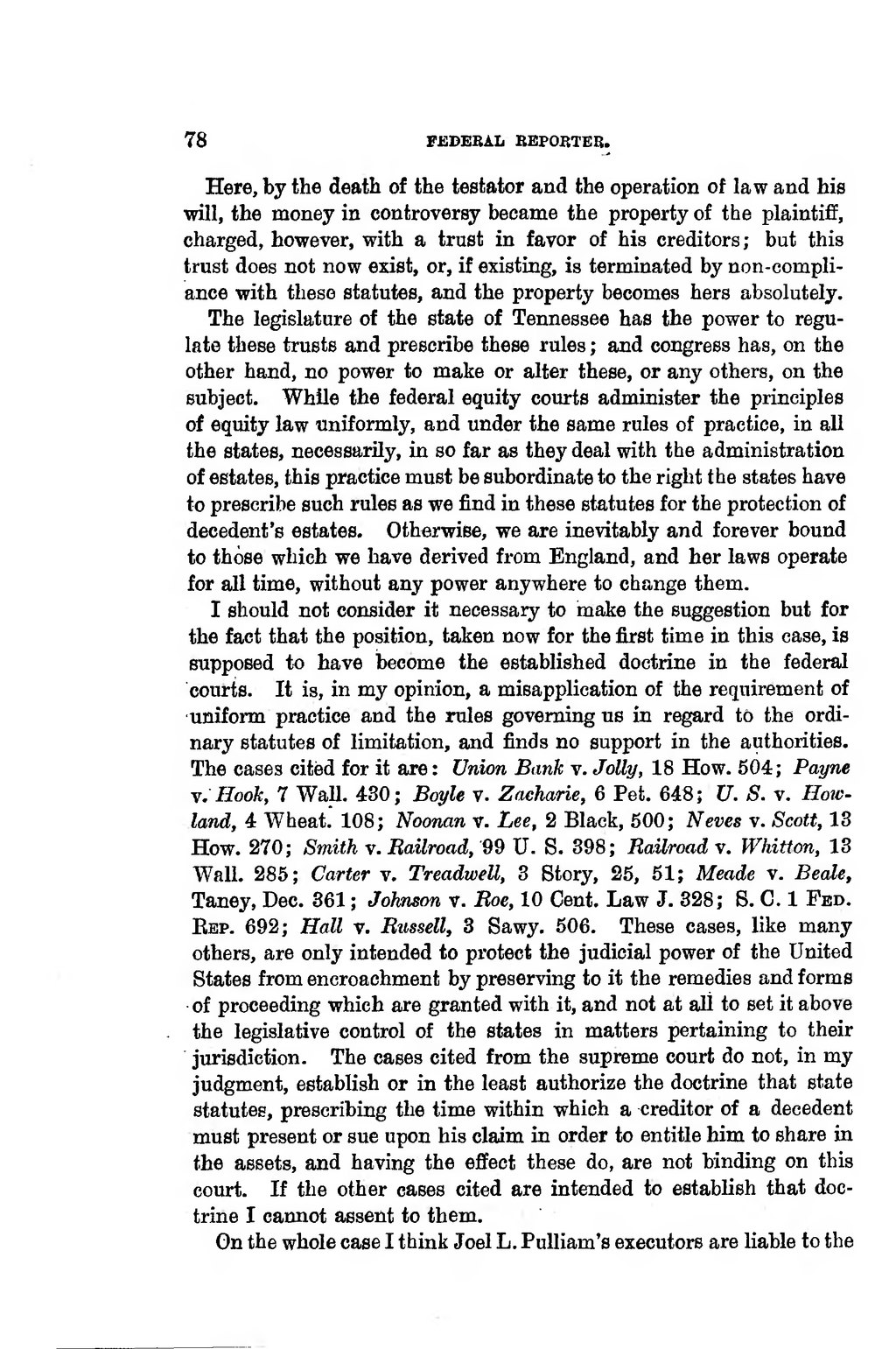78 FEDERAL REPORTE R. �Here, by the death of the testator and the operation of law and his will, the money in controversy became the property of the plaintiff, charged, however, with a trust in favor of his creditors; but this trust does not now exist, or, if existing, is terminated by non-compli- ance with these statutes, and the property becomes hers absolutely. The legislature of the state of Tennessee bas the power to regu- late these trusts and prescribe these rules ; and congress has, on the other hand, no power to make or alter these, or any others, on the subject. While the federal equity courts administer the principles of equity law uniformly, and under the same rules of praetice, in ali the states, necessarily, in se far as they deal with the administration of estates, this praotice must be subordinate to the right the states have to prescribe such rules as we find in these statutes for the protection of decedent's estates. Otherwise, we are inevitably and forever bound to those which we have derived from England, and her laws operate for all time, without any power anywhere to change them. �I should not consider it necessary to make the suggestion but for the fact that the position, taken now for the first time in this case, is supposed to have become the established doctrine in the federal courts. It is, in my opinion, a misapplication of the requirement of unifonn praetice and the rules goveming us in regard to the ordi- nary statutes of limitation, and finds no support in the authorities, The cases cited for it are: Union Bank v. Jolly, 18 How. 504; Payne V. Hook, 7 Wall. 430; Boyle v. Zaekarie, 6 Pet. 648; t7. S. v. How- land, 4 Wheat. 108; Noonan v. Lee, 2 Black, 600; Neves v. Scott, 13 How. 270; Smith v. Railroad, 99 U. S. 398; Railroad v. Wldtton, 13 Wall. 285; Carter v. Treadwell, 3 Btory, 25, 51; Meade v. Beale, Taney, Dec. 361 ; Johnson v. Roe, 10 Cent. Law J. 328; S. C. 1 Fed. Eep. 692; Hall v. Russell, 3 Sawy. 506. These cases, like many others, are only intended to protect the judicial power of the United States from encroachment by preserving to it the remedies and forms of proceeding which are granted with it, and not at all to set it above the legislative control of the states in matters pertaining to their jurisdiction. The cases cited from the supreme court do not, in my judgment, establish or in the least authorize the doctrine that state statutes, prescribing the time within which a crediter of a decedent must present or sue upon his claim in order to entitle him to share in the assets, and having the eflfect these do, are not binding on this court. If the other cases cited are intended to establish that doc- trine I cannot assent to them. �On the whole case I think Joel L. Pulliam's executors are liable to the ��� �
